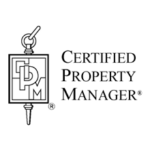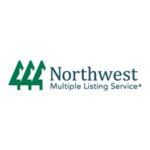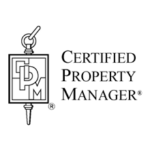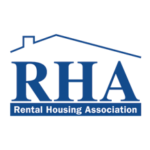Education
The Answer is Not Always a Four-Letter Word!
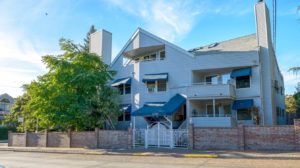 OK. Here goes. When owners of multi-family properties have problems or want to check out their options after owning their properties for a period of time, who do they call? The answer is not ghost busters. They call a real estate broker. Often times they may not even need to make the call as they probably are being contacted pretty consistently by brokers asking if they want to sell. I digress.
OK. Here goes. When owners of multi-family properties have problems or want to check out their options after owning their properties for a period of time, who do they call? The answer is not ghost busters. They call a real estate broker. Often times they may not even need to make the call as they probably are being contacted pretty consistently by brokers asking if they want to sell. I digress.
The owner calls a broker and 99.99% of the time the solution to their problems is a four letter word. SELL! They will be provided with stories about how other owners had the same problems and after selling all the problems went away. If you think successful brokers are not well trained with a lot of sales experience … (Here’s a good one … evoke the thought of how they will feel “after” they sell … will they use the funds to go to Europe? What will they do with all the spare time they now have when not dealing with tenants, toilets, and trash?) You are just not aware. I certainly am not saying that the real estate broker is dishonest. Quite to the contrary. In addition to my property management practice, I myself am an active broker. If you stop and think about it however the only way a broker can live and survive is to give the four letter answer “SELL”.
What is the correct answer? As in everything, it all depends. Take a step back and carefully ponder what it is that is going on. Are you just tired of dealing with the proverbial tenant’s toilets & trash? Then the answer might be property management. Is it, as I have written about in prior articles, you have done your return on equity analysis and the answer is not one you are happy with? Then you should look at perhaps doing a 1031 exchange however, often times, if the asset is a good one and you have a lot of equity in the property, the answer may be keep it, refinance out the excess funds and use that to purchase a new property. If the property has become functionally obsolescent, then by all means update the units and paint. It’s cost effective and the return on your investment will be a big one. I could probably fill a full page with possible scenarios.
Taking a step back and looking at the bigger picture, there are tremendous benefits in owning rental properties. If you are considering a sale, what will you do with the proceeds? Keeping them in real estate will guarantee keeping up with inflation. If, after considering everything the answer is to sell, then there are other considerations to think about. If you do not need all the cash, consider selling and playing the bank. God knows they make a lot of money. You can get a nice down payment and carry the note, with the interest rate adjusting if rates go up. Just like the banks do. A great benefit of doing this is that you will pay capital gains on the down payment and the portion of the monthly payments that are “principal”. This is usually a very small amount of the monthly payment.
People are quite used to “staging” their homes when they go to sell. It is a well-known fact that the return on doing so makes it well worth it. While the process may be more involved with rental housing, the results are the same. If you do make the decision to sell your building, you should give look at from a new buyer’s critical perspective. Do the units need painting and upgrades? Can you do some cosmetic improvements and increase the rents? I have seen a lot of money left on the table by sellers who sell buildings that have not been “staged” or improved prior to going to market. Great news for a buyer because they can then come in, do what the seller didn’t, and take advantage of the higher rents they can then achieve.
Cap Rates (the return an investor would achieve if they paid all cash for the building after all the income was collected and the expenses taken subtracted) are currently in the 4% to 5% range in many parts of the Seattle market. How does this effect a Seller? It means for every dollar in income you have, the buyer will pay you $25.00 at a 4 Cap, $20.00 at a 5 Cap. If you increase the rent of your units by even $50.00 per month, $600 per year, you will get $15,000 more on the sale if it is sold at 4 Cap, $12,000 more at the 5 Cap. Multiply this times the number of units you have and you will see that it would be well worth it to prepare your building for sale.
As in anything else in life, careful consideration should be given before making any decision. This is especially true with making a decision about your rental properties. While it is difficult, you should do all you can to take emotion out of the equation. If you do, and if you think through all the possibilities, weighing the pros and cons, the right path will appear.
About the Author
Bruce A. Kahn, CCIM, CPM is a Managing Director of Foundation Group Investment Real Estate Solutions, a full-service property management and brokerage company. He has earned the designation of CCIM (Certified Commercial Investment Member) issued by the CCIM Institute, and is a CPM (Certified Property Manager) with the IREM (Institute of Real Estate Management). For further information or for a property analysis, please contact him at 206-324-9424 or by email.
is a Managing Director of Foundation Group Investment Real Estate Solutions, a full-service property management and brokerage company. He has earned the designation of CCIM (Certified Commercial Investment Member) issued by the CCIM Institute, and is a CPM (Certified Property Manager) with the IREM (Institute of Real Estate Management). For further information or for a property analysis, please contact him at 206-324-9424 or by email.

